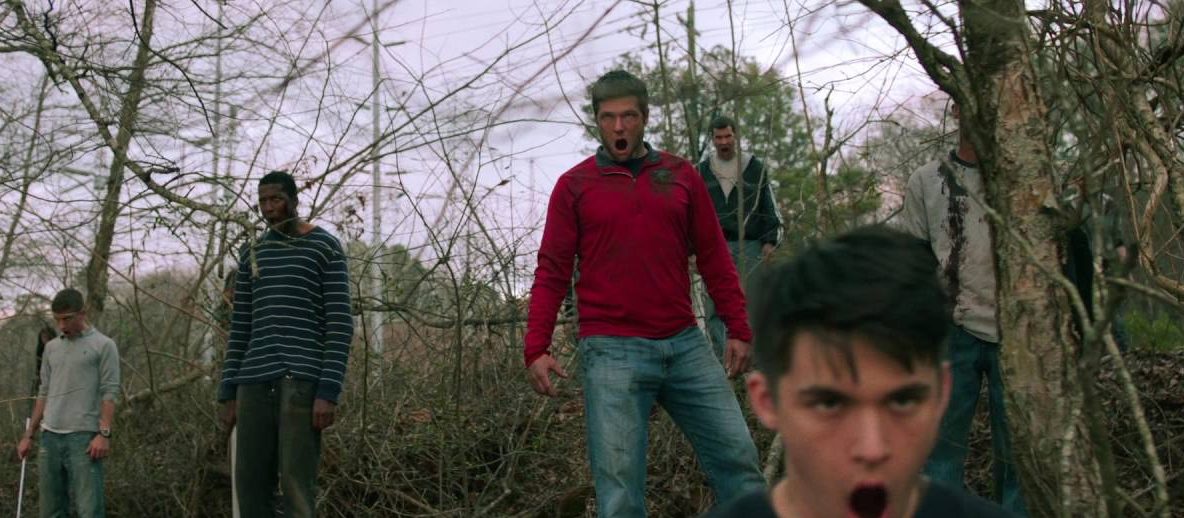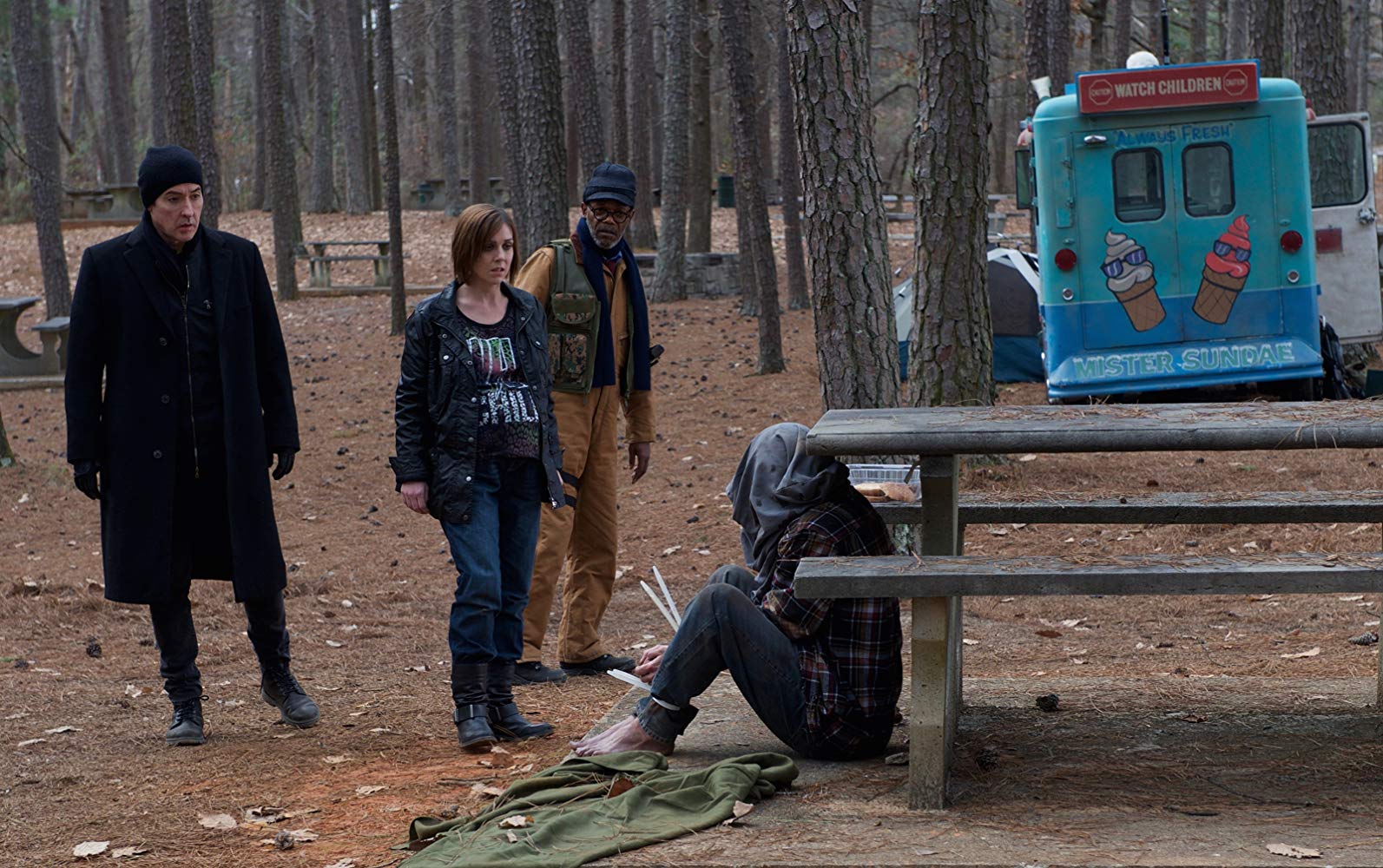

“You think Bob Dylan’s a phoner?”
Cursed with horrid CGI, a disinterested lead, a Swiss cheese narrative, spotty direction, and a light social message that might have been considered prescient twenty years earlier, Cell is a bottom-tier Stephen King adaptation based on one of the author’s worst novels. That the average high-strung American has an unhealthy attachment to their mobile device may have been a passably sharp observation when King wrote his book in 2006, but in 2016 it’s hard not to look right past that and ask what else the film is trying to say. Sadly, the answer is nothing. It’s not even trying to poke fun. We just have phones turning people into zombies followed by a sub-par zombie flick. The dearth of juicy commentary or satire means the action, the characters, the effects—something, anything, please—must step into that void. But nothing does and so if you manage to make it through Cell without your eyes blurring from tears of boredom any memory of the film will likely be hazy at best.
The film spends its opening credits sequence making sure that the viewer realizes that everyone at the airport is using their cell phones. Luckily for Clay Riddell (John Cusack), an exemplary piece of trash who abandoned his wife and son to pursue his dream of publishing a comic book, his phone has run out of battery. When he resorts to a payphone to make contact with his estranged spouse and kiddo, a “pulse” surges through the phones and into the heads of all those innocent people. All around him, people are having seizures, bashing their own faces against the wall, attacking the non-pulsed with bare hands and knives. It’s like they’re zombies, except since this is about cell phones they are called “phoners.” Genius. I know, I know, they’re not actually zombies, but come on—phoners?
I guess all of the people who didn’t get blasted by their phones managed to find their way out of the pandemonium and sneak onto the airport shuttle. It also seems that they all have watched enough apocalypse movies to be completely nonplussed by the sudden animalistic rage of the vast majority of their fellow human beings. It’s just the end of civilization as we know it, but they act as if this is an every day type of thing. In this weird moment, with the film already tonally hamstrung by its own hand, we are introduced to Samuel L. Jackson playing Samuel L. Jackson—I mean, Tom McCourt. Only one other dude, who is quickly killed off, decides to join McCourt and Riddell as they march their way to safety. They soon cross paths with Clay’s neighbor Alice (Isabelle Fuhrman) and our trio of zombie crusaders is formed. From there we follow Clay on his quest to reunite with his wife and son, who are important to him now that hell has broken loose but weren’t when he abandoned them to follow his dreams.

The narrative is a squishy little blob of gobbledygook that is stripped of any hint of storytelling that might be present in King’s original work. The film boils down a few information-dump conversations with other survivors and encounters with zombies. After a single day of the apocalypse, a private school headmaster (Stacey Keach) postulates all sorts of stuff about hive minds, telepathy, and human evolution. At the school, the phoner students are all laying together on the football field transmitting music. At this point, instead of thinking that there may be a potential cure for whatever this ailment is, McCourt and Riddell drive a tanker truck over the mass of students and douse them in fuel. Then the headmaster shoots a flaming arrow into the crowd and sets all these kids on fire. Some of them stand up and run around while burning to death. Seeing their agony, Riddell and McCourt become remorseful and… just kidding, they gun them all down.
We soon encounter The Raggedy Man (Joshua Mikel), a character from Riddell’s comic book. Alice has also dreamed of him because that makes a lot of sense. The trio finds a bar advertising “no phones” and they enter to find other unaffected people. This gives Riddell a chance to explain his past actions and come across as even more of a turd human being. When everyone is asleep, Sally (Catherine Dyer) gets zapped through the door and becomes a phoner. She lets some other phoners in but for some reason they wait until everyone is awake before attacking them. Alice dies, but more importantly, Clay and Tom learn of a community in Maine where there is no cell phone reception.
The ending is similarly ridiculous and incomprehensible. Although King was co-credited with the screenplay, he was apparently cut off very early in production and shouldn’t be blamed entirely for the final product (which lingered in post-production for several years).
The true crime of Cell is not the third-tier King source material, but that it was incompetently made. There’s an over-reliance and poor implementation of shaky cam, shoddy editing, terrible CGI. Cusack and Jackson, who starred in the underrated King adaptation 1408, are just going through the motions. Cusack in particular seems about as interested in the zombie apocalypse as he does the evening news. It almost feels like everyone involved was phoning it in and I’m not surprised that its reception was poor. It’s not even schlocky enough to be a fun B-movie. It’s not so bad it’s funny, but so cheap that it’s sad.